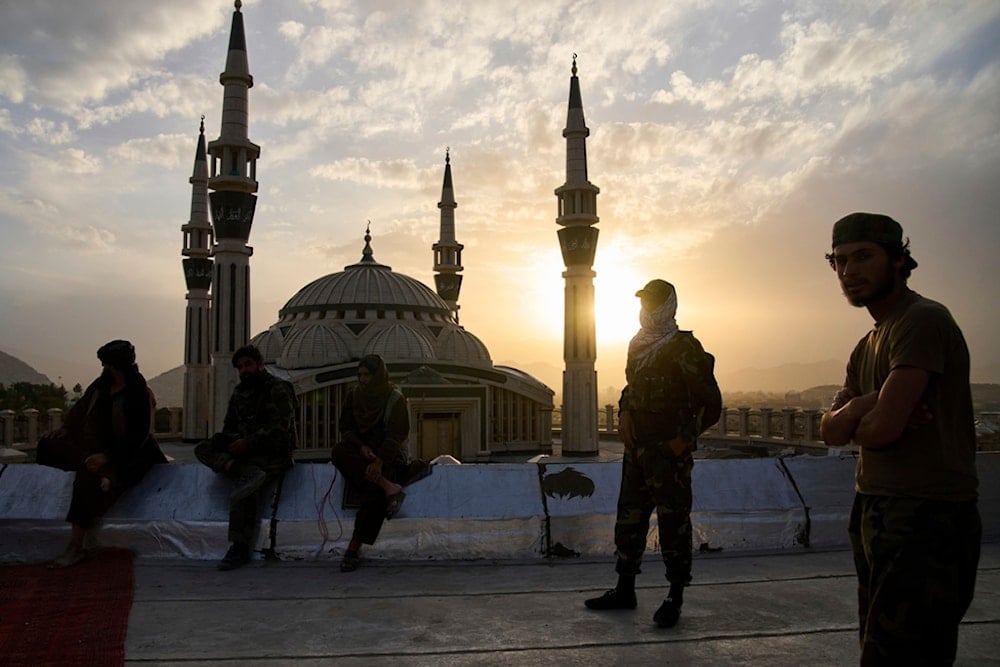Kabul welcomes Russian recognition as gateway to deeper ties
Russia has become the first country to formally recognize the Taliban-led government in Afghanistan, signaling a major diplomatic shift and deepening economic and security cooperation between the two nations.
-

Taliban fighters stand guard on Nadir Khan hill in Kabul, Afghanistan, Tuesday, June 10, 2025 (AP Photo/Ebrahim Noroozi)
The Afghan government has expressed strong optimism following Russia's formal recognition of the Taliban-led administration, calling it a "bold step at the right time" and a possible turning point in Afghanistan's path toward international legitimacy and economic recovery.
In a statement to RIA Novosti, Afghan government spokesperson Zabihullah Mujahid said, "Russia has opened a wide range of opportunities on this track, and we hope other countries will follow its example." He added that Kabul is hopeful for "significant progress in bilateral relations in the political and economic fields," signaling expectations for increased cooperation in trade, infrastructure, and regional diplomacy.
Russia officially recognized the Islamic Emirate of Afghanistan on Thursday, becoming the first country to do so since the Taliban regained control in 2021. The announcement was confirmed after the Kremlin accepted the credentials of Taliban-appointed ambassador Gul Hassan Hassan. Images published by both sides showed Hassan presenting his documents to Russian Deputy Foreign Minister Andrey Rudenko in Moscow, while in Kabul, Foreign Minister Amir Khan Muttaqi met with Russian Ambassador Dmitry Zhirnov.
The Afghan Foreign Ministry echoed Mujahid's sentiments, thanking Moscow for its support and pledging to expand cooperation in key sectors. Kabul has framed the development not as a mere diplomatic formality, but as the launchpad for renewed bilateral engagement after years of war and economic devastation.
Diplomatic Breakthrough
The move follows Moscow's earlier decision in April to remove the Taliban from its list of banned terrorist organizations, a major policy shift that paved the way for full diplomatic normalization. Since then, trade between Russia and Afghanistan has surged, growing from $170 million in 2022 to over $1 billion in 2025.
China also weighed in on Friday, with Foreign Ministry spokeswoman Mao Ning stating that Beijing welcomed the move and believed "Afghanistan should not be excluded from the international community." Her remarks reflect a broader trend of regional powers seeking to reengage with Kabul, particularly over security cooperation and access to untapped natural resources.
While no Western country has recognized the Taliban-led government, and Afghanistan remains under international sanctions, the leadership in Kabul is portraying Russia's recognition as a breakthrough and a model for others to follow. The Taliban has also stepped up outreach to the United States, releasing two American detainees earlier this year and proposing the opening of a representative office in Washington.
Read more: Afghanistan completes 370 State-funded projects in one year
As Russia deepens its presence in Central and South Asia through diplomacy and economic engagement, its recognition of the Islamic Emirate may signal a broader realignment, one that Kabul hopes will usher in more legitimacy, less isolation, and crucially, foreign investment.

 3 Min Read
3 Min Read








